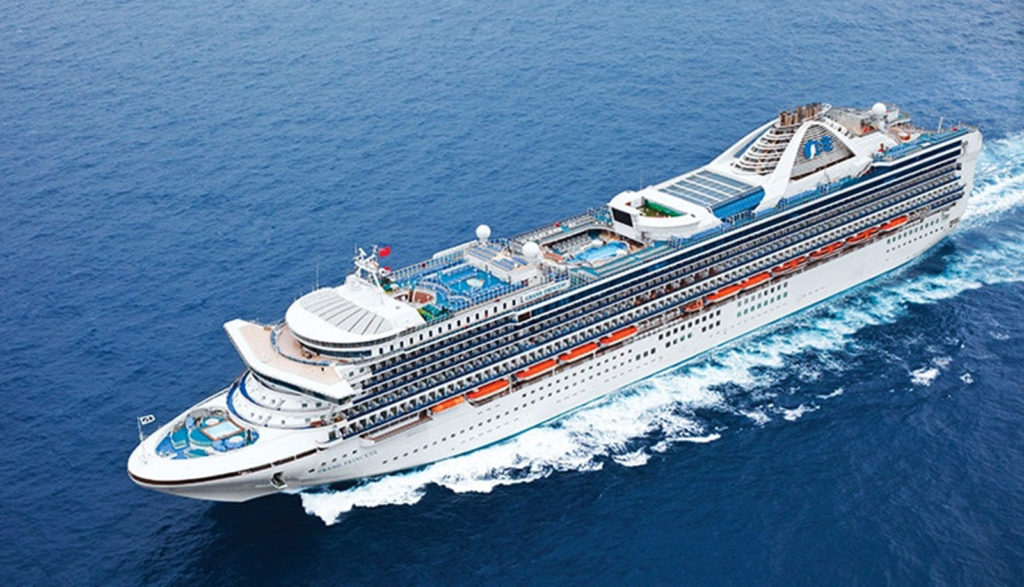First detected in Wuhan, Hubei Province, China, the coronavirus, also referred to as COVID-19, is a respiratory disease which has since spread to more than 142 countries, including the United States. It is also called a “novel” virus because it has never been detected before this outbreak.
The Coronavirus COVID-19 has progressed from an outbreak, to an epidemic and now is classified as a pandemic.
An epidemic is generally defined as an increase in a number of cases of disease above what’s normally expected within a geographic region, according to the CDC. A pandemic is an epidemic that has spread over several countries or continents and affects a large portion of the population.
If you have a trip planned and wondering if travel insurance will cover coronavirus-related issues (cancelled flights, schedule changes, medical treatment, temporary displacement expenses, etc.…), here’s what you need to know.
Will My Travel Insurance Cover Coronavirus?
As a general rule, travel insurance will not cover (or have limited benefits for problems related to) the coronavirus outbreak. That’s because travel insurance companies have declared the coronavirus as a “foreseen event.”
An exception may be if travelers purchased the insurance before a designated date (before the virus was declared a “foreseen event.” That date, for many travel insurers is January 22, 2020.
Surprisingly though, some travel insurance companies have recently loosened restrictions on claims related to the coronavirus.
Allianz Global Assistance (who offers some great annual plans like (Annual Business Trip, Annual Travel, and Globetrotter Insurance,) for example, has announced it will accommodate the following types of coronavirus-related claims until further notice:
- Emergency medical care and emergency medical transportation. These benefits will be available if you become ill with COVID-19 while on your trip.
- Trip cancellation or trip interruption. These benefits will be available if you become ill with COVID-19 before or during your trip.
Additionally, Allianz customers who purchased their plans prior to Jan. 22, 2020, for trips to mainland China, South Korea, or the Lombardy or Veneto regions of Italy, with a departure date prior to April 1, 2020, will have trip cancellation benefits.
Travelex Insurance customers and traveling companions ‘who contract the coronavirus or are physically quarantined may be eligible for trip cancellation and trip interruption coverage. The illness must be certified by a physician at the time of cancellation/interruption.’ This may be handy if you are in an area where quarantine has been imposed preventing you from beginning or completing your travels.
Each passenger’s benefits will depend upon the individual travel insurance company and their specific requirements. As the coronavirus outbreak continues to impact travel, check with your travel insurance company regularly to determine if it has made any changes to policy rules for coronavirus-related claims.
Here are some coronavirus update pages from travel insurance providers:
Berkshire Hathaway Travel Protection
How Does a “Foreseen Event” Affect My Travel Insurance Coverage?
Since a foreseen event has a reasonable expectation of taking place, travel insurance generally won’t cover it in their policies.
However, if you purchased a travel insurance policy before your travel insurance company’s foreseen date, you may have coverage for coronavirus-related problems.
Depending on your specific travel insurance company, you may not have coverage for a loss due to the coronavirus after the provider’s ‘cut-off date.’ However, you still have coverage for potential other problems covered by the policy that aren’t due to the coronavirus.
As a helpful tool, I’m sharing with you some of the dates being used by the most popular travel insurance companies as the date they declared the coronavirus as a “foreseeable” event and consequential issues as a result. Policies purchased on and after these dates are unlikely to cover coronavirus-related problems.
- AIG Travel Guard: January 24th, 2020
- Allianz Global Assistance: January 22nd, 2020
- AXA Assistance USA: Dates Vary by Region – For Mainland China it’s January 27th, 2020. For Italy it’s March 4th, 2020.
- Berkshire Hathaway Travel Protection: January 21st, 2020
- Travelex: January 21st, 2020
Note, that it is a common practice for travel insurance policies to specifically exclude coverage for problems related to ‘pandemics and epidemics,’ whether it’s “foreseeable” or not. This type of exclusion is common in many (not just travel) insurance policies. It’s often referred to as a ‘Force Majeure’ clause (French for “superior force”) that allows a party to suspend or terminate the performance of its obligations when certain circumstances beyond their control arise. If ever there was such an event, the novel virus COVID-19 (the coronavirus) seems to fit such an exception.
What About Trip Cancellation and Trip Interruption Coverage?
Trip cancellation and trip interruption insurance cover problems that interrupt or cause you to cancel your trip, like airline delays and medical problems. But again, because the coronavirus is a foreseen event, you most likely won’t be covered for any coronavirus-related problems if you purchased your travel insurance policy after it was declared foreseen.
What about “Cancel For Any Reason” Travel Coverage?
You may have begun to hear a lot more about “Cancel for any reason” insurance. Well, it’s not as simple as easy and comprehensive as it might sound. “Cancel for any reason” insurance (CFAR) coverage is an addition to a base travel insurance policy which allows you to cancel the trip for any reason that’s not already a reason covered by the policy. Typically, you will receive a reimbursement of a portion of your prepaid, forfeited and non-refundable trip costs, typically between 50% and 75%.
These policies typically cost around 40% more than a standard travel insurance policy.
So far so good? Well, there’s a catch: With most policies you have to purchase “covered for any reason” coverage within 14 to 21 days of your first trip payment. For example, if you booked a trip in mid-December, you can’t add CFAR coverage at the end of January (perhaps when you became alarmed at the coronavirus’s worldwide reaching capabilities.)
Some of the Best Credit Cards Which Offer Travel Insurance
- The Platinum Card® from American Express
- The Business Platinum® Card from American Express
- Delta SkyMiles® Reserve American Express Card
- Delta SkyMiles® Reserve Business American Express Card
- Hilton Honors Aspire Card from American Express
- Marriott Bonvoy Brilliant American Express Card
What Are Other Potential Travel Insurance Coverages?
As stated, the coronavirus is classified by most now as a foreseeable event. As a result some travel issues which may arise related to the outbreak will most likely be excluded (assuming you purchased your policy after it was declared as a ‘foreseen event’). That does not automatically mean you’ll have zero coverage. Here are some travel insurance coverages that might be useful if the coronavirus impacts your trip.
Medical Expenses. If you contract the coronavirus during your travels, you may have coverage, as some travel insurance providers are not basing this coverage on foreseeable events. These types of claims are typically handled on a case-by-case basis, according to Insurance Business.
Travel Delays and Missed Connections. If a coronavirus outbreak causes delays with a common carrier, like an airline or train station, you might have some insurance benefits, like food and accommodations. This could be critically important to those who find themselves in a lockdown quarantine situation; like Italy.
What If I Want to Postpone My Trip Until After the Coronavirus Pandemic?
If you want to postpone your trip, you are facing two issues. First, will the airline allow a change waiver allowing you to re-schedule your trip fee free? Secondly, you then might be able to have your travel insurance policy changed to cover the new dates for your re-scheduled trip.
With most waivers, the airlines and cruise lines are requiring booked travel to be re-scheduled to be completed within a specific time frame; in many cases before the end of the year.
Click here for all the latest coronavirus updates and policies by airline and hotel, travel insurance, stimulus payment, and expert advice posts
What About My Planned Cruise?
As we know, many cruise lines have suspended operations to curtail the spread of the coronavirus. At the same time, many cruise-goers may be rethinking their plans to get on a ship and be locked away with another two to three thousands strangers and crew for a period of several days. We have seen the Grand Princess and the Holland Westerdam caught up in the wake of COVID-19’s path. The Grand Princess has a capacity of 3,100 passengers plus 1,100 crew.
If you purchased a cruise-only travel insurance policy, you may still be able to add “cancel for any reason” coverage. Some travel insurance companies allow you to add CFAR for a cruise up until your final cruise payment.
What If the Coronavirus Outbreak Gets Worse and I Don’t Want to Travel?
Fear of travel is not a covered reason for your insurance to reimburse your expenses. You may have several options with the airlines and cruise companies. Many are allowing travel to be re-scheduled (but not cancelled and refunded) for a future date.
If you have CFAR coverage, then you could cancel as you paid for that privilege by buying such a policy.
What If I Become Infected with the Coronavirus While Traveling?
If your policy includes emergency medical and medical evacuation benefits, you may be covered for those expenses. However, remember the travel insurance companies have declared the coronavirus a foreseeable event; as such most companies consider medical benefits on a case-by-case basis and it’s likely your claim will be denied.
What If I Plan to Visit a Country That Has Not Yet Labelled as a Hotspot for Coronavirus?
As of today, more than 142 countries have reported confirmed cases of the novel virus COVID-19 (coronavirus) so the odds are you’re flying to a destination or connecting through a country which has had at least one reported case of the virus.
Clearly, now the possibility of the coronavirus impacting your travels is a foreseeable event, so in most cases your travel insurance will exclude coverage on this new itinerary.
That could include issues which may not seem obvious right now; perhaps delayed flights, transportation delays, closures of places of business or events.
Those types of problems would not be covered if you bought the policy on or after the “foreseeable event” date. As the World Health Organization (W.H.O.) declared a worldwide pandemic on March 11, 2020 all travel insurances can use that as a blanket date to exclude future coverages until things change.
If you are traveling, or planning future travels, your travel insurance will still cover you for other types of problems that are not related to the coronavirus, like lost baggage, inclement weather disrupting travel as well as personal injuries.
Can I Get Refunded for My Travel Insurance Policy Costs?
Often travel insurance providers allow a grace period by which a consumer purchasing a policy may cancel and get a full reimbursement (assuming travel has not already begun.) This period may be on the average between 10 and 15 days. You would have to check with your individual insurance company to see what time limits are provided.
The UpShot
We are in uncharted waters when it comes to travel and this coronavirus pandemic affecting the world. Travel is disrupted as we have never seen before.
It’s important to know what travel insurance options are out there and what options you have for your planned trips. Whether you are currently traveling, have a trip booked or are looking beyond this crisis to plan your travels, you need to understand the role and limitations of travel insurance.
Are your travel plans impacted by the coronavirus? If you have any experiences with how your travel insurance responded during that time please share in the comments below.
The responses below are not provided or commissioned by the bank advertiser. Responses have not been reviewed, approved or otherwise endorsed by the bank advertiser. It is not the bank advertiser's responsibility to ensure all posts and/or questions are answered.



2 comments
Hi! You wrote your article before yet another change to Travelex’ claim policies. Since paying for insurance coverage a few months ago, the policies have said three different things: trip interruption is covered, trip interruption is not covered but quarantine is covered, and now quarantine is not covered. I’m very confused on my rights and which iteration of policy would apply to me during a claim. Can you provide any insight on what I can expect? Thanks for your helpful info!
@Isolated traveler-
Although I am not an insurance expert, each insurer has an affirmative obligation to call an insured’s attention to changes in the insured’s coverage. Whether an insurance company sufficiently notified an insured of a change in coverage at the time of policy renewal is a question of law to be determined by the trial court.
In most cases the deciding factor is what is the most favorable to the insured, either
1) The terms at the time of purchase, or
2) The new terms affected by the change